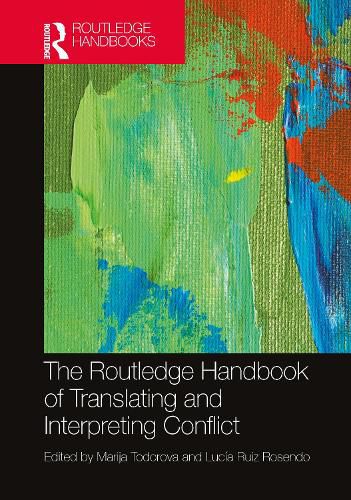Readings Newsletter
Become a Readings Member to make your shopping experience even easier.
Sign in or sign up for free!
You’re not far away from qualifying for FREE standard shipping within Australia
You’ve qualified for FREE standard shipping within Australia
The cart is loading…






The Routledge Handbook of Translating and Interpreting Conflict offers a comprehensive exploration of the roles translators and interpreters play in conflict settings. Spanning diverse geographical regions and historical periods, this volume examines how language professionals contribute to military operations, humanitarian aid, peacebuilding, and asylum processes. The Handbook addresses pressing issues such as the recruitment and protection of interpreters, ethical dilemmas, emotional and psychological challenges, and the evolving use of technology in conflict zones. It also includes emerging topics such as the role of women interpreters, the translation of peace agreements, and the impact of environmental conflicts. Drawing on a wide range of case studies-from the medieval Iberian peninsula to the ongoing conflict in Ukraine-the book blends historical insights with contemporary examples, offering a truly global perspective.
Methodologically diverse chapters range from archival research and ethnographic studies to interviews, memoir and documentary film analyses, and micro-histories of individual interpreters. This volume is an essential resource for researchers, practitioners, students, and anyone interested in understanding how language shapes and responds to the complexities of conflict. It highlights the critical yet often overlooked contributions of translators and interpreters in some of the world's most challenging situations.
$9.00 standard shipping within Australia
FREE standard shipping within Australia for orders over $100.00
Express & International shipping calculated at checkout
Stock availability can be subject to change without notice. We recommend calling the shop or contacting our online team to check availability of low stock items. Please see our Shopping Online page for more details.
The Routledge Handbook of Translating and Interpreting Conflict offers a comprehensive exploration of the roles translators and interpreters play in conflict settings. Spanning diverse geographical regions and historical periods, this volume examines how language professionals contribute to military operations, humanitarian aid, peacebuilding, and asylum processes. The Handbook addresses pressing issues such as the recruitment and protection of interpreters, ethical dilemmas, emotional and psychological challenges, and the evolving use of technology in conflict zones. It also includes emerging topics such as the role of women interpreters, the translation of peace agreements, and the impact of environmental conflicts. Drawing on a wide range of case studies-from the medieval Iberian peninsula to the ongoing conflict in Ukraine-the book blends historical insights with contemporary examples, offering a truly global perspective.
Methodologically diverse chapters range from archival research and ethnographic studies to interviews, memoir and documentary film analyses, and micro-histories of individual interpreters. This volume is an essential resource for researchers, practitioners, students, and anyone interested in understanding how language shapes and responds to the complexities of conflict. It highlights the critical yet often overlooked contributions of translators and interpreters in some of the world's most challenging situations.